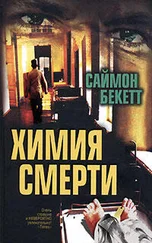Chris Beckett
SPRING TIDE
I’ve never told anyone about my cellar because I know that, as soon as I speak of it, it will cease to be truly mine. Even if issues of legal ownership were not to arise – and I’m fairly certain they would – people would want to see it, look into its origins, make it into news. I mean, good God, a thing like this could go viral, all round the world. And, even supposing that sort of media attention could in some way be avoided, my friends would certainly expect to share my find. I can imagine them now, whooping with excitement as they run up and down the stairs and along the corridors. I can almost hear them planning the parties we would have.
But that of course would be the end of everything that I most value about my cellar. If I were ever to share its secret, it would just be another bunch of rooms from that day on, however unique its construction, however mysterious its origins, however stupendous its scale. And, like so many millions of other rooms in every city and town, and in every single country all around the world, it would be given functions – storage, office space, accommodation – and be cluttered up, as other rooms are, with chairs and pictures and computers and desks and cupboards and beds and people and chitchat and TV and all the other props and rituals of that dreary and repetitive little dance that people call life. If I keep the secret, on the other hand, my cellar is something else entirely, barely of this world at all.
So I speak to no one about it, and have permanently abandoned any thought of moving anywhere else, or of embarking on any relationship which might, at some point, raise an expectation of staying over or – heaven forbid! – moving in. Not that I’ve had any interest in such relationships lately. At the beginning, before I’d completely absorbed the full implications of my discovery, I did still go out and meet with other people. I occasionally even invited friends back, getting a bit of a thrill, if I’m honest, from watching them in my little home, chatting and laughing about nothing as people do, without the slightest inkling of the vast and mysterious spaces beneath them. In fact, I used to give them tours of the house, the way you do, showing what I’d done with the various rooms – the knocked-through wall here, the clever little storage units there – just so I could listen to them coo about how spacious it was, how clever I was at making space. I had a job not to laugh out loud.
But as time went on, I became less interested in human interaction. Increasingly, when social opportunities were offered me, I turned them down and chose the cellar instead, until eventually the invitations all but died away. At one point I contemplated putting it about that I’d joined one of those secretive cults whose rules forbid fraternising with non-believers, and whose beliefs are sufficiently obnoxious to prevent anyone wanting to fraternise anyway. I thought it might be a way of putting an end to the last annoying trickle of invitations, as well as potentially embarrassing spur-of-the-moment visits. But these problems seem pretty much to have solved themselves now, leaving only the occasional irritant of telephone enquiries about my well-being from my more persistent friends.
When I bought the house, there had been no cellar mentioned in the details I received from the estate agent, and I’m quite sure the previous owner had no inkling of its existence. I myself found it purely by accident one day when I was investigating some loose boards in the middle of my living room floor.
Ever since I’d moved in, I’d been irritated by a patch of carpet there that subsided slightly when I stepped on it. However, when it actually came to doing something about it, the annoyance those boards caused me had always seemed pretty trivial in comparison to the time and trouble that would be involved in moving the furniture and rolling back the fitted carpet. In particular, I was put off by the prospect of shifting a largish dresser which I hadn’t bothered to move even when I redecorated the room. But that particular Saturday I noticed that the wobbly board or boards had now actually stretched the carpet to the point that it never quite lay flat. Since I happened to have nothing else in particular to do that day, I decided I’d try and fix the problem right there and then.
I piled all the furniture, other than the dresser, at one end of the room. I took the drawers out of the dresser and stacked them in the hallway, and then I went next door to ask my neighbour Dave if he would help me shift the dresser itself. I had to offer Dave a cup of tea after that, of course, which was tiresome, and listen to him discuss the merits of the five interestingly different combinations of motorways and A-roads that he’d used over the years when visiting his in-laws in Doncaster. But when he’d finally gone – it was about 11 in the morning by then – I rolled back the carpet, identified the loose boards, and pulled them up to see what was going on. It turned out that one of the joists beneath them had at some point split, with the result that it was sagging slightly in the middle, and was only held together by a couple of fibres.
All that was really needed was a little extra support at the weak point, and, since the joist was only half a metre above the concrete base of the house, that was a simple matter: it could simply be propped up with bricks. To make things even easier, I happened to have some bricks in my back garden, left over from building a wall, which would be more than enough for the job. I was about to go and fetch some of them when I noticed – and I could so easily have missed it! – what looked like the corner of a metal hatch in the concrete. That was unexpected. A hatch to gain access to where ? I pulled up more boards to allow me to get down next to it and pull it open. Inside I found a set of descending stairs, disappearing into darkness.
I felt rather excited. It seemed I had a cellar down there which had somehow been forgotten about along the way as the house passed from owner to owner. I realised that it would almost certainly be too damp to be of use – otherwise why would the stairs have been boarded over in the first place? – and, since I had the whole house to myself, I had no real need for extra room in any case. But there was something profoundly satisfying all the same about the idea of having more space at my disposal than I’d known about. I’d always hated clutter – that was the simple explanation for the spaciousness which my friends had always admired – and I’d always considered myself to be the polar opposite of a hoarder. The house was sparsely furnished, I didn’t collect ornaments or keep books that I’d already read, and anything I didn’t actually use any more was promptly dispatched to the dump or a charity shop. But space I liked – you could never have enough of that – and my favourite dreams were about discovering new and unexpected rooms.
Intrigued and excited as I was, though, I did hesitate before going down the stairs. I can even remember wondering whether to go round and fetch Dave again so as to have someone with me. How I’ve changed! It seems extraordinary to me now that I could have contemplated such a thing even for a moment! But I saw things differently then and, apart from anything else, there was a vague apprehension in the back of my mind that there might be some criminal explanation for the hidden cellar. What if there were bodies down there, for instance?
After a few seconds thought, however, I decided that Dave was unnecessary and I fetched a torch and began to descend the stairs on my own. Dead bodies would certainly not be pleasant, but they did seem rather far-fetched. And if there were new rooms for me at the bottom of those stairs, I wanted a chance to savour them without dreary old Dave beside me to spoil the moment by prattling on about the various cellars he’d encountered over the years, or the relative merits of plastic membranes and waterproof rendering as a means of keeping out the damp. How different everything would have turned out if I hadn’t made that choice !
Читать дальше












